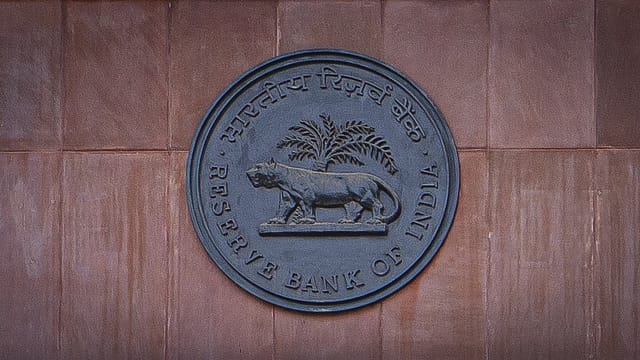RBI tightens digital lending norms to curb scams
ADVERTISEMENT

The Reserve Bank of India (RBI) has announced implementation of the first tranche of regulations aimed at the digital lending space amid rising instances of illegitimate digital lending activity and harassment. The regulations lay down inter alia measures to protect borrowers, as well as technology and data requirements to be followed by digital lenders.
In a statement on Wednesday, the central bank pointed out the public concerns pertaining to “unbridled engagement of third parties, mis-selling, breach of data privacy, unfair business conduct, charging of exorbitant interest rates, and unethical recovery practices.”
In this backdrop, the RBI had constituted a working group on digital lending including lending through online platforms and mobile apps on January 31, 2021. The recommendations of the group were then put up for public comments, which were taken into account to formulate “regulatory framework to support orderly growth of credit delivery through digital lending methods while mitigating the regulatory concerns”.
“This regulatory framework is based on the principle that lending business can be carried out only by entities that are either regulated by the Reserve Bank or entities permitted to do so under any other law,” RBI says.
RBI says that its new digital lending guidelines are focussed on the digital lending ecosystem of its regulated entities (REs) and the lending service providers (LSPs) engaged by them. LSPs are defined as agents of regulated entities that carry out one or more lending functions — customer acquisition, underwriting support, pricing support, disbursement, servicing, monitoring, collection or loan recovery — in lieu of a fee.
To address consumer protection and conduct issues, the RBI guidelines mandate that all loan disbursals and repayments should be executed only between the bank accounts of borrower and the RE, without any passthrough or pool account of the LSP or any third party. Any fees to be paid to LSPs in the credit intermediation process shall be paid directly by RE and not by the borrower, they further add.
RBI has asked its Res to provide a standardised key fact statement (KFS) to borrowers before executing a loan contract. All-inclusive costs of digital loans, in the form of annual percentage rate (APR) will have to be disclosed to the borrowers, which shall be mentioned in the KFS.
The APR calculation shall factor in all cost and margins, including cost of funds, credit cost and operating cost, processing fee, verification charges, maintenance charges, etc., barring contingent charges like penal charges, late payment charges, etc.
Automatic increase in credit limit without explicit consent of borrower is prohibited, RBI warns in its new digital lending guidelines.
As per the new rules, borrowers shall be offered a cooling-off or look-up period in the digital loan contract, during which they can exit digital loans by paying the principal and the proportionate APR without any penalty.
RBI has also directed REs and the LSPs engaged by them to appoint a nodal grievance redressal officer to deal with complaints related to fintech and digital lending, along with complaints against their respective digital lending apps (DLAs). The websites of REs and LSPs, and the DLAs they operate, have been asked to prominently showcase details of their respective grievance redressal officer. Borrowers can approach the RBI ombudsman if their digital lending complaints are not addressed within 30 days.
The data collected by digital lending apps “should be need based, should have clear audit trails and should be only done with prior explicit consent of the borrower,” RBI stipulates under the technology and data requirements of its new guidelines.
On these apps, borrowers shall have the option to accept or deny consent for use of specific data, including the option to revoke previously granted consent. They can also opt to delete the data collected by the DLAs.
More guidelines for the digital lending space are likely to be announced in days to come. RBI is further examining some more rules for the sector after granting its in-principle approval to them, while others have been tabled before the central government for its consideration.
“RBI’s working group recommendations for digital lending makes for greater regulation of fintechs, focuses on transparency, privacy and oversight for entities regulated by RBI, enhances data safety for borrowers and provides better customer protection. The recommendations will also enable increased collaboration between NBFCs and fintechs/digital aggregators, which are still at early stages of evolution and will provide better credit penetration in the long run,” says YS Chakravarty, MD & CEO, Shriram City Union Finance.
“The mandatory submission of data to credit bureaus by LSPs, fintechs and aggregators is positive for banks and NBFCs. As market players adapt to the new regulations, there will be stronger oversight build over time, as was the case with banks or NBFCs,” he adds.